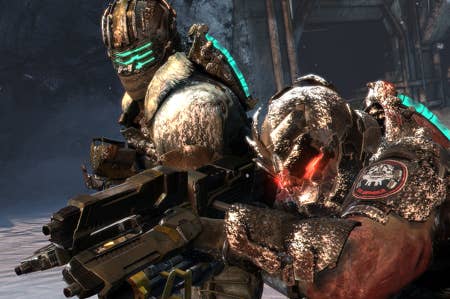EA aiming for 5 million sold with Dead Space 3
Electronic Arts reaching out to a large audience with Issac Clarke's latest outing
The addition of co-operative play to Dead Space 3 is a part of Electronic Arts' continuing effort to bring the franchise to a broader audience. In an interview with CVG, EA Games Labels president Frank Gibeau explained why the publisher continues to play around with the presentation of each title.
"What we've tried to do with each installment is tell a different story about Isaac but at the same time bring in new features and ways to turn the game into a more connected experience. For example, in the second one we added the deathmatch multiplayer, but we found from fans that they loved the single-player but when they went online they felt it really didn't capture what Dead Space was about. I think it was well executed, but it wasn't a big hit with fans," said Gibeau.
EA and Visceral felt that co-op was the way to add multiplayer while still being true to the horror side of the game.
"It's more fun to be scared together than by yourself. So we embraced that idea and we tried to open up the accessibility of the IP a little bit by adding a little bit more action, but not undermining the horror. We can't not be a horror game because that's what Dead Space is," he said.
"So with the addition of co-op and taking it to a planet and mostly away from space... we're pushing it in areas such as environment, co-op and at the same time we definitely do not want to piss off our fans by taking it too far from horror. We're very self aware of that - we listen to the fans and we hear them."
Gibeau told CVG that Dead Space 3 is aiming for 5 million copies sold in order for the franchise to continue.
"In general we're thinking about how we make this a more broadly appealing franchise, because ultimately you need to get to audience sizes of around five million to really continue to invest in an IP like Dead Space. Anything less than that and it becomes quite difficult financially given how expensive it is to make games and market them. We feel good about that growth but we have to be very paranoid about making sure we don't change the experience so much that we lose the fanbase," he closed.

